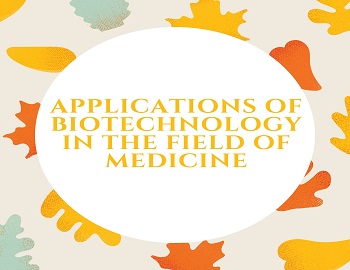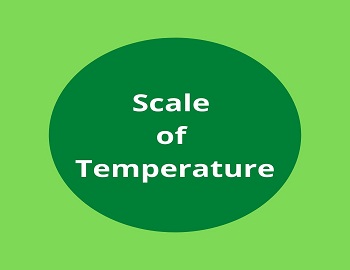What is Biotechnology?
According to U.S. National Science Federation, “Biotechnology is defined as the controlled use of biological agents such as microorganisms or cellular components for beneficial use”.
Biotechnology is the technological exploitation of biological processes including genetic engineering for obtaining useful materials for agriculture, industry, domestic, medical and other uses.
It is employed in the preparation of biogas, biofertilizers, sewage treatment, alcoholic beverages, non-alcoholic beverages, bread and other food, dairy products, organic acids, vitamins, enzymes, steroids, antibiotics, hormones, transplants, gene therapy etc.
Applications of Biotechnology in the Field of Medicine:
Biotechnology has a wide range of applications in the field of medicine. Its applications in medicine include the prevention of disease, early diagnosis of disease, treatment of disease, genetic counselling, gene therapy and forensic medicine.
- Development of Vaccine for Immunity– Vaccines are chemical substances prepared from the proteins (antigens) of the other animals which confer immunity to a particular virus. The development of vaccines through biotechnology includes the following three ways:
- Separation of a pure antigen using specific monoclonal antibody interferons (proteins having a property of inhibiting viral infection and cell proliferation) have been purified by using monoclonal antibodies. These are used for the treatment of cancer.
- Synthesis of antigen with the help of cloned gene. These are the examples of vaccines produced by the cloned gene – a vaccine for hepatitis B virus and a vaccine for malaria.
- Synthetic peptides as vaccines. These are the vaccines for smallpox, rabies, poliovirus and for cancer and foot and mouth disease virus (FMDV).
- Diagnosis of diseases– For the diagnosis of various diseases, biotechnology has provided two very effective and sensitive tools- monoclonal antibodies and DNA probes. These are being prepared and made available for the diagnosis of a variety of diseases e.g. diseases caused by the protozoans and helminths, sexually transmitted diseases, congenital diseases.
- Treatment of Diseases- Various drugs for the treatment of various diseases is also manufactured using biotechnology. Treatment of a disease can also be affected via gene therapy. Various drugs produced through biotechnology are – Insulin, Interferons, growth hormones (prototrophin and somatotrophin), human blood clotting factor VIII, immunogenic proteins etc.
- Insulin- Human Insulin is the first hormone produce by genetically engineered bacteria Escherichia coli. By using recombinant DNA technology, the gene that produces insulin is inserted into the bacteria Escherichia coli. The Escherichia coli thus produced carrying a gene for human insulin is a genetically modified Escherichia coli that produce human insulin.
- Somatotrophin- It is required to overcome pituitary dwarfism caused by non-secretion of hormone from the anterior pituitary. The DNA or gene cDIVA (without introns) required for the synthesis of growth hormone is first synthesized and integrated with a bacterial plasmid (trp gene). The latter produces the required hormone. It has also been produced inside silkworm.
- Interferons- Discovered by Issacs and Lindenmann in 1957 are the class of antiviral proteins called cytokines functioning as immune regulators or lymphokines produced by the infected cells in response to viral infections. These proteins are produced by most body cells on exposure to viruses. They diffuse to neighbouring cells and trigger a reaction that neutralizes the particular viruses which induce their formation.
- Forensic Medicines- Forensic medicine is used for the identification of criminals such as murderers and rapists, reuniting the lost children, solving disputed problems of parentage, etc with the help of DNA fingerprinting.
- Medicinal uses of moulds- Some of the important medicinal products from moulds are penicillin (Penicillium notatum), citric acid (Aspergillus niger) and gluconic acid fermentation. The antibiotic Penicillin was discovered by Sir Alexander Fleming in 1928 and it proved to be a wonder medicine during Second World War. It is still an important medicine and is used widely to treat different infections in the body. Different mutant forms of fungus produce different types of penicillin, that are effective in treating different diseases. Ampicillin, tetracyclin, are some important antibiotics. Antibiotic prevent bacterial growth by either killing the bacteria or by making them inactive.









Comments (No)